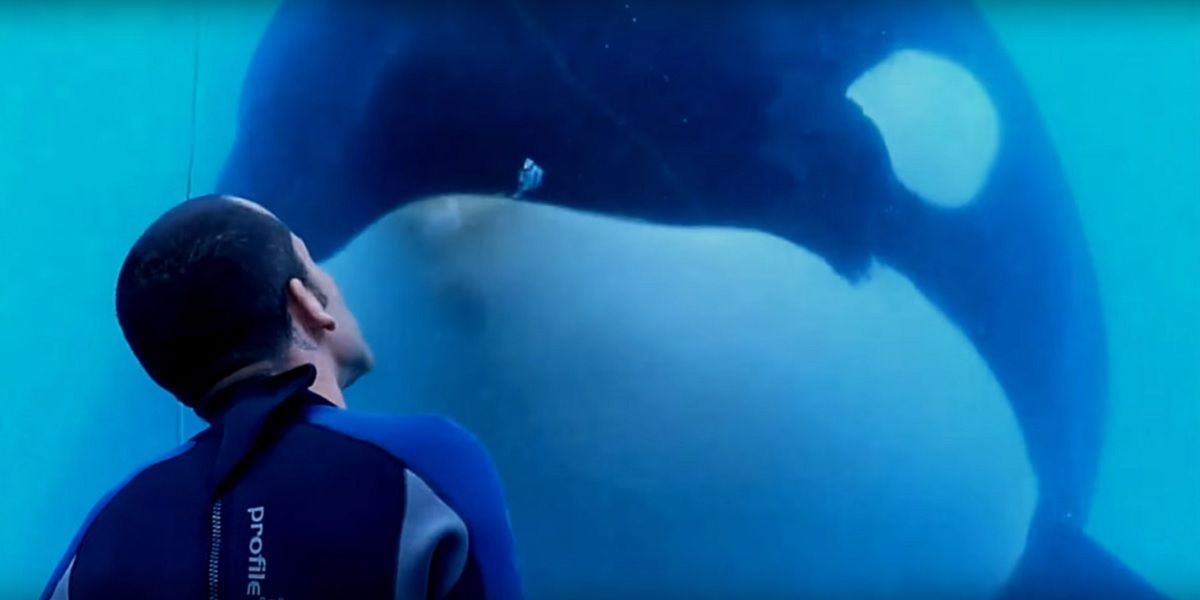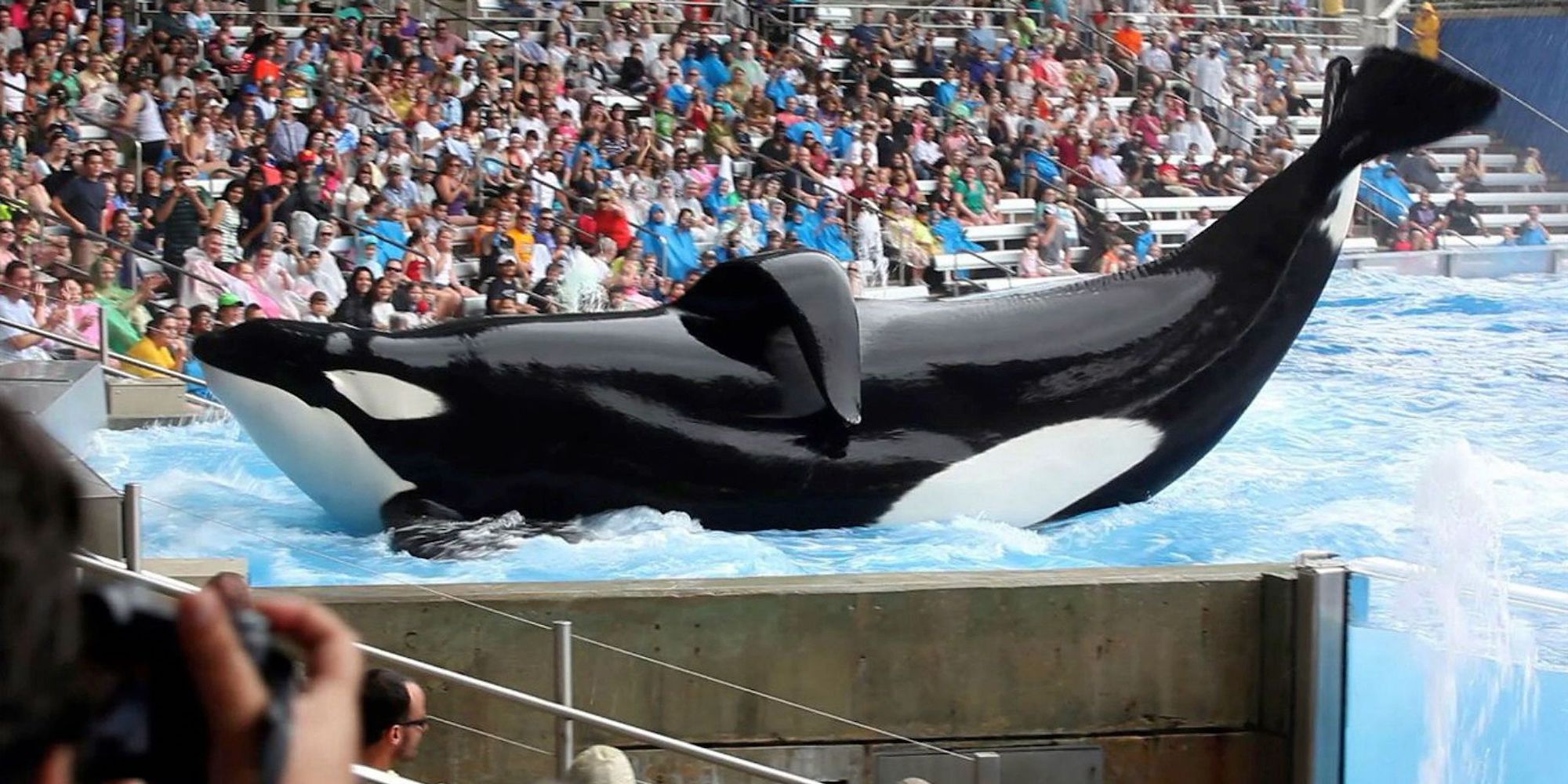
SeaWorld and its ex-CEO James Atchison have reached a $5 million settlement with the U.S. Securities and Exchange Commission (SEC) over allegations that the company deliberately falsified risks to investors posed by the 2013 documentary Blackfish. The SEC claimed that Atchison and SeaWorld instigated insider trading in early 2014 in order to mitigate losses caused by its negative portrayal in the film. Atchison resigned from SeaWorld in January 2015.
Premiering at the 2013 Sundance Film Festival, Blackfish follows the life and captivity of an orca whale involved in the highly publicized killing of animal trainer Dawn Brancheau during a SeaWorld show in 2010. Director Gabriela Cowperthwaite followed the process by which orcas were captured in the wild, confined to aquariums, and then said to develop aggressive tendencies over time. SeaWorld refuted claims of animal cruelty or the implications of psychological trauma caused by the animal living conditions in the Orlando, Florida park. The film was nominated for the British Academy of Film and Television Arts (BAFTA) award for "Best Documentary."
Related: Blackfish vs. SeaWorld: How Documentaries Can Change the World
Following a long list of infamous investor catastrophes like Enron and the subprime mortgage crisis, the SEC has cited the incident as exemplary of the need for stricter regulations around transparent risks to stock ownership. As reported by Reuters the SEC received a report that SeaWorld was aware of Blackfish's impact on declining sales following its release. Over $800 million in vested shareholder interests were depleted as a result.

Atchison has been held accountable for $1 million of the $5 million fine, while SeaWorld is expected to cover the balance. Seaworld has emphasized its intentions to re-prioritize animal rescue and long-term care operations, following its decision to put an end to its orca breeding and killer whale performances. Following Blackfish, the company created the SeaWorld Cares website, which details its animal support programs and denounces the film as "propaganda, not a documentary."
Understanding the full impact of Blackfish highlights that documentaries are retaining their power to inspire action, especially on a topic as heated and pervasive as animal cruelty. The subject of whale captivity resonated with film audiences 20 years before Blackfish, in 1993's Free Willy, which spawned three sequels and a TV show. However, pairing factual and narrative films on the same topic, perhaps for emphasis, is starting to trend. Last year brought two Watergate-inspired films discussing journalism's role in democracy: the HBO documentary, The Newspaperman: The Life and Times of Ben Bradlee and The Post. The 2018 documentary RGB is about Justice Ruth Bader Ginsberg's role in fighting for gender equality, while Felicity Jones is set to star in the biopic On the Basis of Sex. As more documentaries that discuss social change emerge, such as Michael Moore's Fahrenheit 9/11 follow up, it's possible that more conversations about film as means of becoming informed on present day issues outside of the internet will be had.
MORE: Fahrenheit 11/9 Trailer: Michael Moore Takes on Donald Trump
Source: Reuters
from ScreenRant - Feed https://ift.tt/2DowlOb


0 Comments